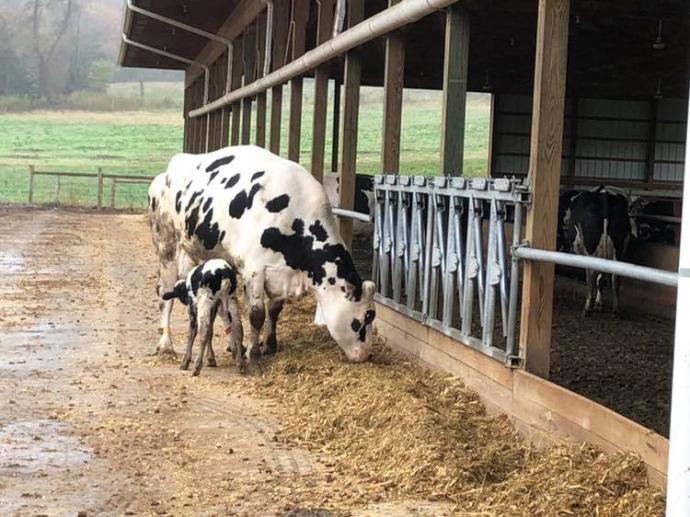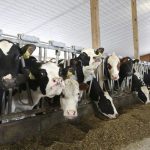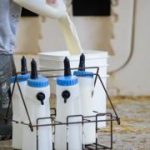
Demand is down and so are the prices, but the cows still need to be milked and that’s part of the problem.
Courtney Henderson’s Facebook page is filled with videos of her product and her pride.
“They’re big toddlers, really,” she said, patting the head of a heifer.
She’s a sixth generation dairy farmer at Cave Hill Farm in Botetourt County, with milk production at the farm dating to the 1700s. But it’s the future of her farm that’s harder to picture.
“That is the ultimate question right now, and that is something that is scary to think about,” she said.
Henderson said prices for the hundredweight for milk have dropped about $6 in the last month.
“But milk prices for us have dropped to where it’s below what we needed in order to break even,” she said.
Plus, they can’t be confident they’ll even be able to sell it. Some dairy farmers across the country have had to dump milk down the drain. While demand for liquid milk at grocery stores remains following an initial rush, schools, universities, restaurants and retail partners are no longer buying.
“Those plants can’t just switch on a dime over to doing fluid milk. So even though we have a major pandemic where people are stocking up on food, stocking up on gallons of milk and everything else, we don’t have the processing plants ready for that in a sense,” Henderson said. “The plants that are making the fluid milk right now, like the plants we’re specifically selling to, they’re working at complete and total full capacity. They can’t take any more milk than what they already have and anything that’s excess is having to be dumped.”
“It’s just been a huge shock to the industry,” said Lindsey Reames with the Maryland and Virginia Milk Producers Cooperative, and wife to a dairy farmer.
Reames said Monday the Cooperative markets for hundreds of dairies from Pennsylvania to Georgia.
Their work now to adjust to the new normal is the “spring flush,” or the birth of many new calves.
“The spring flush combined with the pandemic has created a situation in some cases of oversupply and not having a place to be able to take that milk,” she said.
Reames said she is working with the partner dairies and the processing centers that the Cooperative owns to make adjustments – ones that are changed to adapt to the situation almost daily.
Henderson adds she’s not able to sell off her males for meat production, because the biggest processor in the region is closed. Plus, she’ll have to make adjustments to what she feeds her cows because she said it’s getting more expensive.
As long as the demand is there in grocery stores, Henderson says they’ll be able to provide. But long term, no one is sure what to expect.























